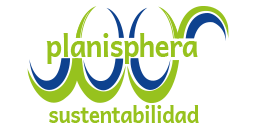The COVID 19 pandemic has made visible various crises on the planet and the scales on which they occur, as an example there are environmental (climate change, biodiversity loss), economic (debt, unemployment), social (limited public health services, growing poverty, gender inequality, and racial discrimination) impacts, which are currently faced by the world but with different magnitudes according to the region or country in which they are takingplace.
The different social distancing measures implemented in 2020 to stop COVID-19 spread resulted in a negative economic impact for countries. It is estimated that the COVID-19 crisis "will push an estimated between 71 million and 100 million people to extreme poverty, measured by the international line of USD 1.90 per day"1.
As the crisis deepens, it becomes necessary for low-income countries to have the fiscal space to take counter-cyclical measures, both fiscal and monetary. To this end, the support of the world’s major economies is required to enable them to subsequently address the impact of the pandemic on their domestic economy -mainly- as well as on their international commitments, including the payment of its external debt. On the latter, in the light of the scale of the economic, and social crisis, the Debt Service Suspension Initiative (DSSI2)-which provides for a limited moratorium on the amount, time and beneficiaries- should be extended.
In this regard, several measures should be taken to enable Governments to regain sufficient fiscal space to take the counter-cyclical measures needed to address the crisis. Among them, we will highlight: an ambitious environmental tax reform (including putting a price on carbon), establishing taxes, as an example, a global minimum tax on corporations, another on short-term financial transfers, and one on the digital economy, among others.
However, some of the various resources that must be made available for the developing countries, are the Special Drawing Rights (SDR’s) that can be a great ally for these countries; since its creation in 1969, as a complementary international reserve, they represent "a potential asset against the free currencies of IMF member countries3 " , that is, they provide countries with the possibility of acquiring resources in one of the five currencies that make up the basket of freely used coins of free use (USD, Euro, Yen JPY, Pound sterling GBP, and Renminbi CNY) to provide them with liquidity and supplement their official reserves in the midst of a global economic-financial crisis.
The G20 proposal, in February 2021, on a new SDR emission4 and the reallocation of SDR surpluses to low-income countries, presents a scenario for remedying the much-needed international aid to deal with the consequences of the COVID-19 crisis. On the other hand, the G7 also supported the proposal of IMF Director-General Kristina Georgieva, with the allocation of SDRs equivalent to 650 billion dollars, to provide liquidity to low-income countries affected by the pandemic without increasing their debt.
Despite the negative consequences of COVID-19, the response to the pandemic also presents an important opportunity for all countries to increase their efforts to develop actions focused on addressing the multiple crises we face, and this must be done by committing to a green and socially inclusive economic recovery (or aimed at a just transition to carbon-neutral economies). However, to achieve this, more international solidarity is needed in several tax areas. Besides, it is necessary that SDR surpluses not only be allocated to low-income countries but also a greater number of countries, such as the middle-development countries, as recently expressed by Alicia Bárcena, Executive Secretary of ECLAC.5
Autor: Karen Castaño / Sarahi Malanche Revisión: Santiago Lorenzo / Citlalic González
Date: 9 de Abril de 2021
Category:Finanzas verdes y sostenibles - Instrumentos económicos - Transición ecológica.
1EVIS RUCAJ,NADA HAMADEH,HAISHAN FU. Entender la deuda en el mundo: aliviar el impacto de la COVID-19 (coronavirus) en los más vulnerables. https://blogs.worldbank.org/es/datos/entender-la-deuda-en-el-mundo-aliviar-el-impacto-de-la-covid-19-en-los-mas-vulnerables
2World Bank. COVID 19: Debt Service Suspension Initiative. https://www.worldbank.org/en/topic/debt/brief/covid-19-debt-service-suspension-initiative
3Fondo Monetario Internacional. Derechos especiales de giro (DEG).https://www.imf.org/es/About/Factsheets/Sheets/2016/08/01/14/51/Special-Drawing-Right-SDR
4Fondo Monetario Internacional. Comunicado de la Cuadragésima Tercera Reunión del CMFI. https://www.imf.org/es/News/Articles/2021/04/08/communique-of-the-forty-third-meeting-of-the-imfc
5Alicia Bárcena. A development allocation of SDRs should benefit all developing countries irrespective of their income levels. https://www.cepal.org/en/articles/2021-development-allocation-sdrs-should-benefit-all-developing-countries-irrespective-their

